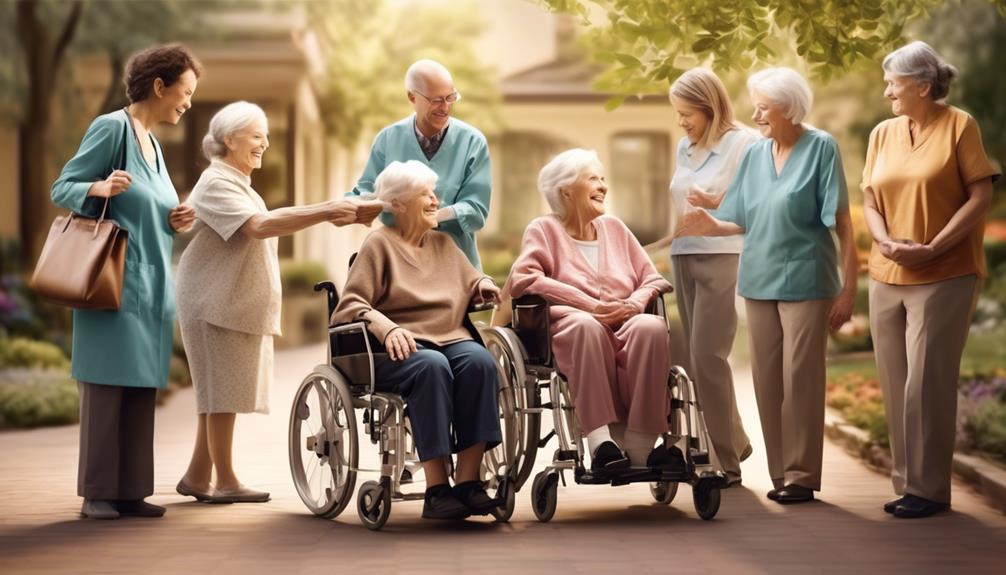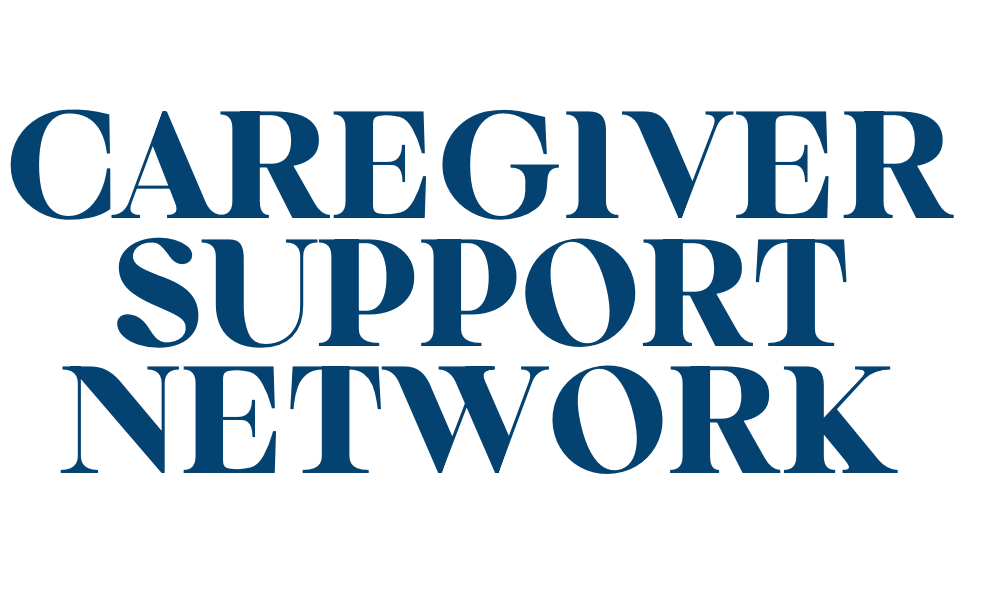Communications and Conversations
New: Role of An End of Life Care Advocate
Intrigued by the evolving role of an End of Life Care Advocate, discover how compassion and advocacy converge to make a lasting impact.

In the sphere of end-of-life care, there’s a common saying that ‘knowledge is power.’ Grasping the changing responsibilities of an End of Life Care Advocate is crucial for maneuvering through the intricacies of this sensitive period.
As we explore the nuances of this essential position, we uncover a world where compassion meets advocacy, where comfort intertwines with empowerment.
Join us in unraveling the layers of this significant role, where every action taken holds the potential to make a profound difference in the lives of those facing their final journey.
Key Takeaways
- Advocate for patient autonomy and dignity in end-of-life decisions.
- Provide holistic support beyond medical care for terminally ill patients.
- Address legal and ethical complexities with compassion and respect.
- Bridge communication gaps to align care with patients' values.
Importance of End-of-Life Advocacy
In our role as advocates for end-of-life care, we embrace the crucial importance of honoring patients' wishes and values during their final stages with compassion and respect. As Nurse Advocates in End-of-Life care, we understand the significance of promoting quality of life for patients facing terminal illnesses. By facilitating discussions around advance directives, we empower patients to make informed decisions about their care, ensuring their preferences are known and respected. Additionally, we prioritize addressing patients' comfort levels to alleviate any distress they may experience, enhancing their overall end-of-life experience.
Advocating for patients in end-of-life care involves creating a supportive environment where their autonomy is upheld, and their voices are heard. By advocating for patient-centered decision-making, we help prevent unnecessary medical interventions that may not align with the patients' desires. Our focus on promoting the well-being and dignity of patients underscores the importance of end-of-life advocacy in improving the overall care experience for individuals and their families.
Responsibilities of Care Advocates

With a focus on providing holistic and patient-centered care, end of life care advocates play a pivotal role in supporting individuals facing critical illnesses. As care advocates, we understand the importance of compassionate treatment and strive to support patients in their end-of-life journey. Our responsibilities include:
- Providing emotional support: We're there to listen, empathize, and offer comfort to patients as they navigate their end-of-life challenges.
- Assisting in decision-making: We help patients make informed choices, address their concerns, and provide guidance to caregivers to ensure the best possible care.
- Advocating for patient values: We work closely with the healthcare team to align care with the values and preferences of the patients, aiming to improve the quality of care and enhance patient compliance.
Through our dedication to holistic care and unwavering support, we aim to make a positive difference in the lives of those facing end-of-life situations.
Challenges Faced by Advocates
Navigating the challenging landscape of end-of-life care advocacy, we encounter various obstacles that test our dedication to supporting individuals facing critical illnesses. Advocates often face resistance from patients' families with differing opinions on end-of-life care decisions, making it challenging to ensure the patient's wishes are respected. The complexities of legal and ethical issues surrounding end-of-life care planning can also pose significant challenges, requiring advocates to navigate intricate processes to uphold patient autonomy. Limited resources and funding further hinder advocacy efforts, impacting the quality of care provided to those nearing the end of life. Additionally, systemic barriers and a lack of support can impede advocates in promoting patient-centered end-of-life care, creating barriers to delivering comprehensive palliative care. Overcoming these challenges requires a steadfast commitment to advocating for patients' rights and preferences, advocating for advance directives, and addressing the systemic issues that inhibit the provision of compassionate end-of-life care.
| Challenges Faced by Advocates |
|---|
| Resistance from families with differing opinions |
| Legal and ethical complexities in end-of-life care planning |
| Limited resources impacting advocacy efforts |
| Systemic barriers hindering patient-centered care |
Training and Education Requirements

When embarking on a journey to become an end-of-life care advocate, one must understand the essential training and education requirements to effectively support individuals facing critical illnesses. To provide the highest quality of care for terminally ill patients, advocates need a strong foundation in various areas:
- Health and Life Sciences: Understanding the medical aspects of end-of-life care is crucial to navigate the complexities of terminal illnesses.
- Advance Directives and Legalities: Knowledge of advance directives and legal frameworks empowers advocates to assist clients in making informed decisions about their care.
- Quality of Life Enhancement: Training in enhancing the quality of life for terminally ill patients equips advocates with the tools to address holistic needs beyond just medical care.
Impact of Advocates on Patient Care
As end-of-life care advocates, we play a pivotal role in improving patient care by championing the respectful fulfillment of patients' wishes and ensuring their personalized needs are met. By advocating for patients and families, we bridge communication gaps in the healthcare system, ensuring that everyone involved is on the same page regarding treatment decisions.
Our support helps navigate the complexities of end-of-life care, allowing patients to receive the most appropriate and tailored health care possible. Through our advocacy, we uphold Human Rights by promoting patient autonomy and empowerment, ensuring that individuals have the right to make decisions about their care.
Additionally, our role extends beyond physical health care; we provide support for mental health and emotional well-being, helping patients and families cope with the challenges they face. Ultimately, our advocacy work strives to improve the quality of care for patients at the end of life, making a meaningful difference in their lives during this critical time.
Frequently Asked Questions
How Do You Advocate for a Dying Patient?
Advocating for a dying patient involves honoring their wishes, providing support, and aiding in decision-making.
We prioritize ensuring their preferences are respected, offering comfort on their end-of-life journey, and collaborating with the healthcare team.
Our role is to navigate complex systems, communicate effectively, and address physical, emotional, and spiritual needs.
What Are the Goals of a Patient Advocate?
Our goal as patient advocates is to ensure that patients' wishes and values are respected and honored throughout their care. We work to empower them to make informed decisions about their end-of-life journey, promoting autonomy, dignity, and comfort.
What Is the Role of the Advocate in a Group Work?
In group work, we advocate to facilitate communication, ensure all voices are heard, and maintain focus on goals. We support collaboration, guide on roles, and promote a positive dynamic. Advocates assist in conflict resolution and respect each member's input.
Our role is to help the team function effectively, ensuring everyone feels valued and contributing towards achieving common objectives.
What Is the Role of the End-Of-Life Care Nurse?
We see the role of the end-of-life care nurse as crucial in providing comfort, support, and advocacy for patients facing critical illness.
Like a gentle breeze on a warm day, our presence brings peace and reassurance to those in need.
Through compassionate care, we ensure that patients' values and preferences are honored, guiding them and their loved ones through this challenging journey with empathy and understanding.
Conclusion
In conclusion, as End of Life Care Advocates, we play a crucial role in providing support and comfort to patients and their families during a challenging time.
Our dedication to advocating for patients' wishes and ensuring their physical and emotional needs are met makes a significant difference in their end-of-life journey.
We may not have superpowers, but our compassion and knowledge help lighten the burden for those facing the end of life.
Albert brings a wealth of knowledge and expertise to our writing team. With a background in caregiving and a deep understanding of the challenges faced by caregivers, Albert’s writing resonates with authenticity and empathy. He is committed to delivering high-quality content that empowers and supports caregivers on their journey.
Communications and Conversations
A Person Centered Dementia Care System Proposal
Yearning for a new perspective in dementia care? Discover a transformative proposal that puts individuals at the heart of the system.

Drawing inspiration from trailblazers like Carl Rogers and Tom Kitwood, we witness a major paradigm shift in dementia care, centered on placing the individual at the heart of the care system.
As we navigate the complexities of person-centered approaches in dementia care, we are prompted to reconsider traditional models and embrace a more holistic and empathetic framework. This proposal challenges us to rethink our current practices and envision a future where dignity, autonomy, and emotional well-being take precedence in caregiving.
Curious to explore how this transformative approach could revolutionize the landscape of dementia care?
Key Takeaways
- Individualized care plans enhance well-being and autonomy.
- Love and comfort are foundational for inclusive care.
- Training on person-centered approaches is crucial for quality care.
- Involving family in care planning fosters supportive environments.
The Need for Person-Centered Care
Recognizing the fundamental importance of person-centered care in dementia, we've witnessed firsthand the transformative impact it has on the well-being and quality of life of individuals living with this condition. When care revolves around individual needs and preferences, it fosters a sense of autonomy, preserving dignity and respect. Tailoring care plans to the unique requirements of each person not only alleviates symptoms like agitation and depression but also creates a nurturing environment that enhances overall quality of life.
In our experience, embracing person-centered care for those with dementia has revealed remarkable improvements in their daily lives. By prioritizing the individual's choices and values, we've seen a profound shift in their mood, behavior, and engagement. This approach goes beyond just managing symptoms; it empowers individuals, giving them a voice in their care and a sense of control over their lives. Through personalized care plans that honor the person's identity and preferences, we've witnessed a significant enhancement in their well-being and overall satisfaction.
Core Principles of the Care System

Having witnessed the profound impact of person-centered care on individuals with dementia, we wholeheartedly embrace the core principles that affirm personhood and prioritize interpersonal relationships in our care system.
In our approach, love and comfort are foundational elements, providing a nurturing environment where individuals feel valued and supported. By emphasizing inclusion and identity, we aim to create a sense of belonging and purpose, enhancing the overall well-being of those in our care.
Our commitment to a holistic approach ensures that we address the diverse needs of each person with dementia, honoring their dignity and respecting their individuality. Through person-centered care, we shift our focus from mere tasks to meaningful interactions, fostering connections that go beyond routine caregiving.
This approach encourages critical evaluation and tailored communication strategies, allowing us to better understand and meet the unique requirements of each individual, ultimately leading to improved outcomes and quality of life for those we serve.
Implementation Strategies and Tools
To effectively implement a person-centered dementia care system, we emphasize the importance of staff training on person-centered approaches and communication techniques. This training equips caregivers with the necessary skills to provide compassionate and individualized care to individuals living with dementia.
In addition to staff training, the following strategies and tools are instrumental in ensuring a successful implementation:
- Developing individualized care plans tailored to the unique needs and preferences of each person.
- Involving family members in care planning and decision-making processes to create a supportive care environment.
- Regularly monitoring and evaluating care practices and outcomes to maintain high standards of person-centered care.
- Leveraging technology such as electronic health records and communication platforms to enhance collaboration among the care team.
- Fostering a culture of teamwork and open communication within the care team to ensure holistic and coordinated care for individuals with dementia.
Benefits of the Proposed System

As we immerse ourselves in the exploration of the proposed system's benefits, we witness a transformative shift towards prioritizing the unique needs and preferences of individuals living with dementia. Our person-centered dementia care system brings forth a range of advantages that center around care, individuality, emotional well-being, and quality of life. Let's delve into the benefits through the table below:
| Benefits | Description |
|---|---|
| Personalized Care Plans | Tailored care strategies focusing on individual preferences and needs |
| Enhanced Emotional Well-being | Prioritizing relationships, fostering a sense of belonging and joy in daily interactions |
| Promoting Autonomy | Empowering individuals with dementia to make decisions and have control over their routines |
| Improved Quality of Life | Creating a supportive and familiar environment, incorporating memories and personal preferences |
| Enhanced Decision-Making | Allowing individuals to actively participate in decision-making processes, enhancing their autonomy |
In embracing a person-centered approach, we elevate the care provided to individuals with dementia, fostering a sense of fulfillment and enhancing their overall well-being.
Potential Impact on Dementia Care Landscape
In our experience, implementing a person-centered dementia care system has shown profound potential to positively transform the dementia care landscape, focusing on the unique needs and preferences of individuals with dementia.
- Enhancing Quality of Life: By providing individualized care tailored to specific needs, we can significantly improve the quality of life for seniors living with dementia.
- Promoting Social Connections: Encouraging interactions and friendships within dementia care communities fosters a sense of belonging and combats feelings of loneliness.
- Boosting Emotional Well-being: Addressing the emotional well-being of individuals with dementia through personalized care plans can lead to reduced agitation and symptoms, enhancing overall mental health.
- Empowering Sense of Identity: Tailoring activities and daily routines to match personal interests helps seniors maintain a sense of identity and autonomy.
- Effective Care Planning: Involving family members, carers, and the individuals themselves in care planning ensures a comprehensive and personalized approach to dementia care.
Frequently Asked Questions
What Is the Person-Centered Care Plan for Dementia Patients?
In our approach to person-centered care plans for dementia patients, we prioritize individual needs, preferences, and histories. Active participation from the person with dementia, family members, and caregivers is key in tailoring support.
Understanding the person's perspective, lifestyle, and cultural background is crucial for creating a personalized care plan that maintains dignity and respect. Our goal is to promote emotional well-being, independence, and engagement in meaningful activities for an enhanced quality of life.
What Is Person Centred Approach to Dementia Care?
When it comes to dementia care, the person-centered approach is all about tailoring support to each individual's unique needs and preferences.
It involves seeing things from the perspective of the person with dementia, honoring their history, lifestyle, and culture.
What Should Be the Main Focus of a Care Plan for a Client With Dementia?
Our main focus in a care plan for a client with dementia is to prioritize their individual needs and preferences. Tailoring activities, routines, and interactions to the person's unique history, lifestyle, and cultural background is crucial.
Understanding their perspective, providing opportunities for meaningful relationships, and promoting autonomy are key aspects of our care plan. Involving family, carers, and the client in developing the plan ensures a holistic and person-centered approach to dementia care.
How Do You Write a Dementia Care Plan?
When crafting a dementia care plan, we start by engaging with the person, their loved ones, and healthcare providers. We tailor the plan to their unique needs, covering daily routines, medication, emotional well-being, and safety.
Regular assessments help us adapt the plan as the person's condition changes. Our goal is to provide personalized care that respects individual preferences and promotes a high quality of life while upholding dignity.
Conclusion
As we journey through the maze of dementia care, let's remember that every individual is a unique flower in the garden of life.
By embracing the principles of person-centered care, we can water these flowers with love, respect, and understanding, allowing them to bloom brightly despite the challenges they face.
Together, we can create a tapestry of care that honors the beauty and essence of each person living with dementia, enriching their lives and our own in the process.
Albert brings a wealth of knowledge and expertise to our writing team. With a background in caregiving and a deep understanding of the challenges faced by caregivers, Albert’s writing resonates with authenticity and empathy. He is committed to delivering high-quality content that empowers and supports caregivers on their journey.
Communications and Conversations
When You Should Stop Driving: Guidance for Older Drivers and Their Loved Ones
Lingering between independence and safety, the decision for older drivers to stop driving is a delicate balance worth exploring further.

In our lives, there comes a point where it becomes essential to tackle a crucial aspect of aging: driving. Understanding when exactly to stop driving presents challenges but is fundamentally critical.
Consider the intricate balance between independence and safety that older drivers and their loved ones must confront. The discussion around this topic delves into nuanced considerations that can profoundly impact individuals and their families.
Key Takeaways
- Address driving concerns with care and involve healthcare professionals.
- Consider alternative transportation options for safety and independence.
- Understand legal aspects and ensure a smooth transition when stopping driving.
- Seek guidance and support from healthcare professionals for older drivers in transition.
Signs of Declining Driving Skills
Recognizing signs of declining driving skills in older adults is crucial for ensuring road safety and well-being. As individuals age, certain behaviors such as getting lost on familiar roads, consistently driving too slowly or too fast, or displaying unsafe driving practices can indicate a decline in driving abilities.
When family members or friends express concerned comments about an older adult's driving behavior, it's important to address these observations seriously. Additionally, if there's a reluctance to ride with the older adult behind the wheel, it may be a red flag that it's time to have a conversation about driving cessation.
Input from other drivers or traffic authorities can also shed light on potential issues with an older adult's driving skills. These insights shouldn't be dismissed lightly, as they play a pivotal role in ensuring the safety of not only the older driver but also other road users.
Having the Difficult Conversation

As we address signs of declining driving skills in older adults, it becomes crucial to approach the sensitive topic of having the difficult conversation about their driving abilities. When discussing driving concerns with aging family members, consider the following:
- Choose a Comfortable Setting: Select a quiet and private place where your older family member feels at ease to have an open conversation about their driving.
- Express Concern and Care: Approach the topic with empathy and understanding, emphasizing that safety is the primary concern and that you care about their well-being.
- Involve Healthcare Professionals: Seek guidance from healthcare professionals who can offer valuable insights and support in navigating this sensitive discussion with older drivers.
Having the difficult conversation about driving may be challenging, but addressing it proactively can prevent accidents and ensure the safety of your loved one. Remember, promoting safety and independence go hand in hand, and open communication is key to finding suitable alternatives for transportation.
Evaluating Alternatives for Transportation
When exploring transportation alternatives for older adults, it's important to consider various options that prioritize safety and convenience. Public transportation, taxis, and rideshare services offer flexibility and independence for elderly drivers. Community transportation services and senior ride programs provide reliable and safe travel options, ensuring peace of mind for both seniors and their loved ones. Additionally, utilizing mobile apps for deliveries and local transportation services can enhance convenience and accessibility.
Calculating the potential cost savings from not owning a car is also crucial when evaluating alternative transportation expenses. By exploring these options, older adults can maintain their mobility while potentially reducing financial burdens associated with vehicle ownership. For assistance in finding suitable transportation alternatives, individuals can reach out to the Area Agency on Aging or utilize the Eldercare Locator for guidance and support in navigating available resources tailored to their specific needs.
Legal Considerations for Stopping Driving

To navigate the legal considerations surrounding stopping driving, it's essential for older adults and their families to be aware of state-specific regulations and requirements regarding senior drivers. Understanding the driving laws that apply to elderly drivers can help ensure a smooth transition when it's time to stop driving.
Here are three key points to consider:
- License Renewals: Some states may require more frequent license renewals for elderly drivers, so staying informed about the renewal process is crucial.
- Eye Exams and Driving Tests: Certain states mandate regular eye exams or driving tests for senior drivers to maintain their licenses and ensure road safety.
- AAA Guide: Checking the AAA guide on state driving laws can provide detailed information on specific regulations for elderly drivers, offering clarity on what's required by law.
Being proactive in understanding state regulations and legal considerations can make the decision to stop driving easier and ensure the safety of elderly drivers and others on the road.
Supporting Older Drivers in Transition
Initiating open and honest dialogue about driving concerns is crucial to ensuring the safety and well-being of older drivers in transition. When supporting older drivers, seeking guidance from healthcare professionals can offer valuable insights and assistance in addressing driving issues effectively.
Encouraging proactive approaches to discussing driving concerns can help older adults transition to alternative transportation options smoothly.
It is essential to prioritize road safety for loved ones by implementing strategies that address driving challenges with aging family members. Physicians and families play a vital role in taking responsibility for discussing driving concerns and supporting older drivers in their transition away from driving.
Frequently Asked Questions
How Do You Know When an Elderly Person Should Stop Driving?
When we notice an elderly person struggling with accidents, close calls, or difficulty with driving tasks, it might be time to consider stopping driving. Loved ones expressing concerns about their safety can also be a sign.
Warning indicators like lane drifting, getting lost, or nervousness while driving should prompt further evaluation. Observing frequent honking, accidents, or trouble with basic driving skills may indicate the need to stop.
How Do You Stop Elderly Family Members From Driving?
We can support elderly family members by having honest conversations about their driving abilities and offering alternative transportation options. It's crucial to address concerns kindly, emphasizing road safety for them and others.
Encouraging a professional driving evaluation can provide valuable insights. Seeking guidance from healthcare professionals or organizations specializing in elderly driving concerns can also be beneficial.
Ultimately, our goal is to ensure the safety and well-being of our loved ones on the road.
At What Age Should Parents Stop Driving?
We believe that determining when parents should stop driving depends on various factors like health, vision, and reaction time. Regular assessments and open discussions with family members can help make this decision.
Changes in driving patterns, accidents, or medical conditions may indicate the need for alternative transportation. Safety is our top priority when deciding the right time for older adults to stop driving.
How Do You Tell Someone They Need to Stop Driving?
We understand it's tough, but when it's time for someone to stop driving, it's crucial to approach the topic with care and concern.
Let's gently discuss any worries or experiences that have led us to this point. We've to prioritize safety for everyone.
It's a delicate conversation, but with support and alternative transportation options, we can navigate this change together.
Conclusion
As we navigate the road of aging, it's important to recognize when it's time to hand over the keys. Addressing declining driving skills with compassion and understanding is like gently guiding a loved one through a foggy intersection.
By having the difficult conversation, exploring transportation alternatives, and seeking legal guidance, we can support older drivers in transitioning to safer ways of getting around. Let's steer towards a future of safety and peace of mind for our loved ones.
Albert brings a wealth of knowledge and expertise to our writing team. With a background in caregiving and a deep understanding of the challenges faced by caregivers, Albert’s writing resonates with authenticity and empathy. He is committed to delivering high-quality content that empowers and supports caregivers on their journey.
Communications and Conversations
How to Deal With a Narcissistic Parent
Tackling the complexities of a narcissistic parent requires more than survival tactics – discover how to navigate this intricate relationship with empowering insights.

Navigating the relationship with a narcissistic parent can be extremely difficult. Setting boundaries and getting help is crucial, yet the situation may grow more complex when trying to prioritize your own mental health leads to disagreements.
Dealing with a narcissistic parent requires more than just survival strategies; it demands a deeper understanding of the dynamics at play. Let's explore how we can not only cope but also thrive in the face of such challenges.
Key Takeaways
- Set boundaries for emotional protection
- Seek therapy and support networks
- Enforce boundaries with assertiveness
- Evaluate relationship impact on mental health
Recognizing Narcissistic Parental Behavior
When dealing with a narcissistic parent, recognizing their behavior patterns is crucial for understanding the dynamics at play in the relationship. It's essential to approach this recognition with empathy, as narcissistic parents often struggle to show empathy themselves. Their behavior can include manipulation, control, and even using fear tactics to maintain dominance within the family dynamic. This can create a codependent relationship where the child feels obligated to meet the parent's emotional needs while sacrificing their own.
Narcissistic parents often avoid taking accountability for their actions, instead choosing to blame others for any mistakes or shortcomings. They seek admiration and may constantly try to steer conversations towards themselves, showcasing their achievements and seeking validation from those around them. By recognizing these traits early on, one can begin to establish boundaries and protect themselves from being emotionally manipulated by the narcissistic parent. Understanding their need for control and admiration is the first step towards navigating a healthier relationship with them.
Coping Strategies for Dealing With a Narcissistic Parent

Navigating a relationship with a narcissistic parent can be challenging, but implementing coping strategies is crucial for maintaining emotional well-being. When dealing with a narcissistic parent's behavior, it's important to set boundaries to protect yourself. Seeking therapy can offer valuable guidance, helping you understand these complex dynamics and providing support. Prioritizing self-care is essential for safeguarding your emotional health amidst the challenges. Accepting the limitations of changing a narcissistic parent's behavior can lead to personal growth by managing expectations effectively. Building a support network of understanding individuals can offer validation, empathy, and strength during difficult times. Here is a table summarizing key coping strategies:
| Coping Strategy | Description |
|---|---|
| Setting Boundaries | Establish clear and firm boundaries to protect your emotional well-being. |
| Seeking Therapy | Seek professional guidance and support to navigate the complexities of the relationship. |
| Self-Care | Prioritize your mental well-being through self-care practices such as mindfulness and relaxation. |
Setting and Enforcing Boundaries
Establishing clear boundaries with a narcissistic parent is crucial for safeguarding your emotional well-being and fostering healthier relationships. When setting boundaries, it's important to communicate your limits assertively and consistently. By using assertive communication, you can clearly express your needs and expectations while maintaining self-respect. Enforcing boundaries involves defining consequences for any violations, reinforcing the importance of respecting your boundaries, and encouraging mutual respect within the relationship. While resistance from the narcissistic parent may occur, staying firm and consistent is essential for preserving your autonomy and mental health.
Enforcing boundaries is a form of self-care that empowers you to prioritize your well-being. It allows you to establish a sense of security and control in the relationship, leading to healthier interactions. Remember, setting and enforcing boundaries isn't about controlling the other person but rather about taking care of yourself and fostering a more balanced dynamic. Stay strong, stay true to yourself, and remember that your emotional well-being matters.
Seeking External Support and Help

To effectively navigate the challenges of dealing with a narcissistic parent, seeking external support and help can be a crucial step towards prioritizing your emotional well-being and gaining valuable tools for coping.
Therapy or counseling sessions offer strategies to cope with the difficulties arising from a narcissistic parent. Joining a support group with individuals who share similar experiences can provide a sense of community and understanding, helping you feel less isolated.
Building a strong support network comprising friends, family, or mental health professionals can offer emotional support and guidance during tough times. Engaging in self-care practices like mindfulness, exercise, and hobbies is essential for maintaining emotional well-being while handling a narcissistic parent.
Creating a social network for recovery can provide a safe space to share experiences, seek advice, and receive validation from others who've faced similar situations. Remember, seeking support isn't a sign of weakness but a courageous step towards healing and growth.
Deciding on Relationship Continuation or Termination
Considering the emotional impact and implications of your relationship with a narcissistic parent is a vital step in determining whether to continue or terminate the connection. Evaluating the mental health repercussions and emotional toll of maintaining ties with a narcissistic parent is crucial. Reflect on the benefits and drawbacks of continuing the relationship and assess how it aligns with your emotional safety and self-care needs. Understanding the patterns of behavior and interactions within the relationship can aid in decision-making. Seeking guidance from therapists or mental health professionals can provide valuable insights into navigating the complexities of the relationship dynamics.
- Evaluate the emotional toll of the relationship with a narcissistic parent on your mental health and well-being.
- Consider the benefits and drawbacks of continuing or terminating the relationship with the narcissistic parent.
- Reflect on the patterns of behavior and interactions that occur in the relationship for better decision-making.
- Seek guidance from mental health professionals or therapists to navigate the complexities of the relationship dynamics.
Frequently Asked Questions
How Do You Respond to a Narcissistic Parent?
When dealing with a narcissistic parent, we respond by setting clear boundaries and practicing assertive communication.
We avoid getting entangled in their manipulative tactics and seek support from a therapist or counselor.
Prioritizing our mental well-being and self-care is crucial.
It's important to stay firm in our responses and remember it's okay to put our needs first in this challenging dynamic.
How Do You Survive Living With a Narcissistic Parent?
Surviving living with a narcissistic parent can be challenging.
We understand the struggles and complexities that come with this situation.
It's important to prioritize self-care, set boundaries, and seek support from loved ones or a therapist.
Remember that your well-being matters, and it's okay to put yourself first.
We're here to offer guidance and encouragement as you navigate through this difficult journey.
Stay strong and take care of yourself.
How Do Narcissistic Parents Treat Their Children?
Narcissistic parents often treat their children with favoritism, manipulation, and emotional abuse. They may play favorites among siblings, use them to fulfill their own needs, and belittle their accomplishments.
Emotional neglect is common, leaving kids feeling unloved and insecure. Manipulation tactics like guilt trips and fear are used to control and maintain power in the relationship. These behaviors can cause deep emotional wounds and lasting impacts on children's self-esteem and well-being.
Can a Parent Lose Custody for Being a Narcissist?
Losing custody due to narcissistic behavior is possible if it harms the child's well-being. Courts consider factors like emotional abuse, manipulation, or neglect.
Professionals may evaluate the impact on parenting. The focus is on the child's best interests, including emotional health.
Narcissistic traits damaging the parent-child bond or creating an unsafe environment can lead to custody loss. It's crucial to prioritize the child's safety and well-being in such cases.
Conclusion
In conclusion, navigating a relationship with a narcissistic parent can be like walking on a tightrope, balancing self-care and boundaries.
Remember, you aren't alone in this journey. Seek support, prioritize your well-being, and trust in your own strength to overcome the challenges.
It's important to remember that you deserve love, respect, and understanding, even in the face of manipulation and toxicity.
Stay strong and resilient, and never underestimate your own worth.
Albert brings a wealth of knowledge and expertise to our writing team. With a background in caregiving and a deep understanding of the challenges faced by caregivers, Albert’s writing resonates with authenticity and empathy. He is committed to delivering high-quality content that empowers and supports caregivers on their journey.
-

 Dementia Care2 months ago
Dementia Care2 months agoUnderstanding the Stages of Vascular Dementia: A Visual Chart Guide
-

 Dementia Care3 months ago
Dementia Care3 months ago10 Engaging Dementia Games for Cognitive Stimulation
-

 Dementia Care3 months ago
Dementia Care3 months agoHow Gabapentin Affects Dementia: A Comprehensive Guide
-

 Dementia Care3 months ago
Dementia Care3 months ago5 Things You Need to Know About Jack Nicholson’s Dementia
-

 Dementia Care1 month ago
Dementia Care1 month agoUnderstanding Narcissism and Dementia: A How-To Guide
-

 Dementia Care1 month ago
Dementia Care1 month agoHow to Deal with a Parent’s Dementia: A Practical Guide
-

 Dementia Care1 month ago
Dementia Care1 month agoDavid Suchet’s Wife Opens Up About Living with Dementia
-

 Dementia Care1 month ago
Dementia Care1 month agoUnderstanding the Link Between Ambien and Dementia: A How-To Guide




















